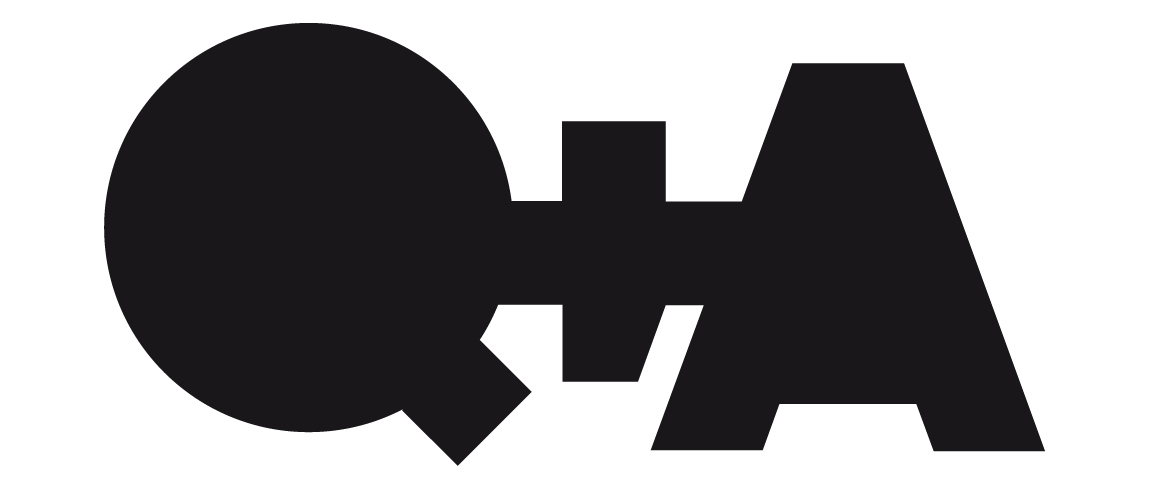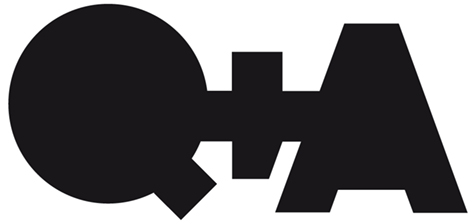SAVE
THE
DATE
AI + Ethics /
Thursday, September 19, 2024
7 pm
Museum Villa Stuck
Interim VS
Goethestrasse 54
80336 Munich
THE
DATE
—
AIMÉE VAN WYNSBERGHE
AI + Ethics /
Der unstillbare
Hunger der KI
Thursday, September 19, 2024
7 pm
Museum Villa Stuck
Interim VS
Goethestrasse 54
80336 Munich
ABOUT
THIS
PANEL
Vor acht Jahren sagte Stephen Hawking: „Es wird entweder das Beste sein, was uns je passiert ist, oder das Schlimmste. Wenn wir nicht aufpassen, könnte es sehr wohl das Letzte sein“, und bezog sich damit auf das Potenzial der künstlichen Intelligenz (KI). Noch immer ringen wir damit, was wir von dieser mächtigen Technologie halten und erwarten sollen. Seit fast zwei Jahren ist KI zugänglicher geworden, mit Anwendungen wie ChatGPT, die es den Nutzern*innen ermöglichen, online mit ihr zu interagieren und ihre Fähigkeiten zu nutzen. Wir haben eine Verbreitung von Software in verschiedenen Bereichen erlebt, und die Versprechen der KI scheinen endlos zu sein. Trotz dieser Versprechen sind mit der Entwicklung und dem Einsatz von KI auch ethische und soziale Kosten verbunden. Dieser entscheidende Moment ist eine ideale Gelegenheit, um mit Expert*innen über die Auswirkungen und die Zukunft der KI zu diskutieren. Mit Aimée haben wir eine unglaubliche Spezialistin auf diesem Gebiet gefunden. An dem Abend mit der Expertise von Aimée van Wynsberghe werden wir Einblicke über die Ethik der KI bekommen und über die verschiedenen Trends, die es bei dem Thema in den letzten Jahren gab. Aimée wird uns durch die ethischen Dimensionen der KI-Entwicklungen von heute und morgen führen, wobei der Schwerpunkt auf der Nachhaltigkeit liegt. Sie erklärt, dass es bei nachhaltiger KI nicht nur um den Einsatz von KI für nachhaltige Zwecke geht, sondern auch um eine Untersuchung der Nachhaltigkeit von KI, d. h. der Umweltkosten, die bei der Herstellung und Nutzung von KI entstehen. Sie wird Fakten und Zahlen zu den benötigten Ressourcen und der Umweltverschmutzung während des gesamten Lebenszyklus von KI ansprechen. Wir werden über greifbare Konsequenzen auf allen Ebenen der KI-Anwendung sprechen.
—
Eight years ago, Stephen Hawking famously stated, ‘It will either be the best thing that’s ever happened to us, or it will be the worst thing. If we’re not careful, it very well may be the last thing,’ referring to the potential of Artificial Intelligence (AI). Today, we are still struggling with what to think and what to expect from this powerful technology. For nearly two years now, AI has become more accessible, with applications like ‘ChatGPT’ allowing users to interact with and harness its capabilities online. We’ve witnessed a proliferation of software across various domains, and the promises of AI seem endless. Despite said promises there are also ethical and social costs associated with the development and use of AI. This pivotal moment presents an ideal opportunity to discuss the implications and future of AI with experts. In Aimée, we have found an incredible specialist in this field. The evening with the expertise of Aimée van Wynsberghe leads us towards insights on the ethics of AI and the various trends and topics AI ethics has seen in the last years. Aimée will take us through the ethical dimensions of AI developments today and tomorrow with a focus on the value of sustainability. She explains that sustainable AI is not just about the use of AI for sustainable ends, but it is also about an investigation into the sustainability of AI; the environmental costs of making and using AI. She will address facts and figures of resources needed and the pollution produced throughout the entire life cycle of AI. We will talk about tangible consequences on all levels AI applies.
ABOUT
AIMÉE VAN WYNSBERGHE
Die Kanadierin Aimée van Wynsberghe ist eine renommierte Professorin für KI und Ethik. Ihr „Bonn Sustainable AI Lab“ wird durch ihre Alexander von Humboldt-Professur für Angewandte Ethik der KI finanziert. Das Labor bringt Forscher*innen mit unterschiedlichem Hintergrund und aus verschiedenen Disziplinen zusammen, um Projekte auf dem Gebiet der nachhaltigen KI durchzuführen, die sich sowohl mit KI für Nachhaltigkeit als auch mit der Nachhaltigkeit von KI befassen. Sie tauschen Ideen zur Verringerung der ökologischen, sozialen und wirtschaftlichen Kosten des Einsatzes von KI in der Gesellschaft aus. Aimée hat einen Doktortitel in Angewandter Ethik von der Universität Twente, wo sie sich auf die Schaffung eines ethischen Frameworks für Pflegeroboter konzentrierte. Außerdem hat sie einen Master in Bioethik im Rahmen des Erasmus-Mundus-Programms und einen Master in Angewandter Ethik der Katholischen Universität Leuven abgeschlossen. Bevor sie nach Europa ging, erwarb sie einen Bachelor of Science in Zellbiologie an der University of Western Ontario.
—
The Canadian Aimée van Wynsberghe is a renowned professor for AI and ethics. Her Bonn Sustainable AI Lab is funded by her Alexander von Humboldt Professorship of Applied Ethics of AI. The Lab brings together researchers from various backgrounds and disciplines to conduct projects within the field of Sustainable AI addressing both AI for sustainability as well as the sustainability of AI. While measuring or assessing the environmental impact of AI the Labs goal is to make AI systems more sustainable. They exchange ideas on reducing the environmental, social and economic costs of using AI across society. Aimée holds a PhD in Applied Ethics from the University of Twente, where she focused on creating an ethical framework for care robots. Additionally, she earned a Master’s degree in Bioethics from the Erasmus Mundus program and a Master’s degree in Applied Ethics from the Catholic University of Leuven. Before moving to Europe, she obtained a Bachelor of Science in Cell Biology from the University of Western Ontario.
STATEMENT
“The AI for (social) good movement is a manifestation of this trend in which almost any application used in the context of healthcare or agriculture can be classified as AI for good regardless of whether such applications have been evaluated from a broader perspective. In this paper, we aim to create a common understanding of what the ‘AI for Sustainability’ movement ought to mean. We distinguish between two possible AI for Sustainability applications, namely those that fulfill the necessary conditions and those that fulfill the sufficient conditions. The former are purely predictive systems that serve as information providers. The latter are directly involved in an activity that contributes to a sustainability goal. We argue that taking action is a key element in distinguishing between these two application groups, as inaction is the key bottleneck in effectively tackling climate change. Furthermore, we question how effective the use of AI applications can be for sustainability when the systems themselves are inherently unsustainable. Hence, AI for Sustainability should include both an action that contributes to a sustainable end goal as well as an investigation of the sustainability issues of the AI system itself. Following that, Sustainable AI research can be on a gradient: AI in an application domain, AI towards sustainability, and AI for Sustainability.”
Falk, S., van Wynsberghe, A.
Challenging AI for Sustainability: what ought it mean? AI Ethics (2023)
Challenging AI for Sustainability: what ought it mean? AI Ethics (2023)
QUESTIONS
Wie können wir KI für
Klimagerechtigkeit „reparieren“?
How can we “repair” AI
for climate justice?
Was sind die versteckten
Kosten und Vorteile von KI?
What are the hidden costs
and rewards of AI?
Welche Hindernisse gibt
es noch in Bezug auf
Umweltthemen?
What are still the
obstacles about
environmental issues?
Was bedeutet Nachhaltigkeit
von KI oder KI für
Nachhaltigkeit?
What does sustainability
of AI or AI for
sustainability mean?
Kann KI noch reformiert
oder transformiert werden oder
hat sie ein Eigenleben?
Can AI still be reformed
or transformed or does it
have a life on its own?
Wie kann man die KI
mit philosophischen Fragen
füttern?
How can one feed
the AI
with
philosophical questions?
Welche wechselseitigen
Abhängigkeiten gibt es bei KI?
What are the reciprocal
dependencies with AI ?
Was sind die Risiken und
Vorteile von KI?
What are the risks and
benefits of AI?
Wie viel Co2 kostet eine
E-Mail oder ein von Chat GTP
geschriebener Brief?
How much Co2 does an
email or a letter written
by Chat GTP cost?
Wo verstecken sich
die
größten
Co2-Fußabdrücke?
Where do the
largest carbon
footprints hide?
Wie können wir
unsere persönliche
Datenverschmutzung
reduzieren?
How can we reduce
our personal data
pollution?
Wie viele Informationen
kann „The Cloud“
speichern?
How much
information can
“The Cloud” store?
Ist unser Planet durch
KI-Missbrauch in Gefahr?
Is our planet in danger
under AI misuse?
In welchem Bereich
ist KI in Zukunft
unbedingt
notwendig?
In which field AI
is crucially necessary
in the future?
Haben wir ligitische Mittel,
um gegen die Explosion von
KI-Systemen vorzugehen?
Do we have ligitical means
to fight against explosion
of AI systems?
Welche moralischen
Fragen stellen sich beim
Einsatz von KI?
What moral issues one
faces while using AI?
Wer betreibt eigentlich
die KI?
Who is actually
operating the AI?
Verbessern „große
Sprachmodelle“
die Sprache auf Dauer?
Do „large language
models“ improve language
in the long run?
Brauchen wir ein neues Wort
für Kommunikation?
Do we need a new word
for communication?
︎
︎︎︎
PANEL ARCHIVE BY TOPIC
RESOURCES
Panel 24
GIOVANNI VECCHIATO
social coding / spatial coding
2025
—
Panel 22
AIMÉE VAN WYNSBERGHE
AI + Ethics / Der unstillbare Hunger der KI
2024
—
Panel 15
SEMIR ZEKI
Is beauty really subjective and can it be quantified? / Cortex (A1)
2020
—
Panel 12
GIACOMO PIRAZZOLI
Green Up / (Crossinglab.com)
2014
—
Panel 8
MARTINA FINEDER and
THOMAS GEISLER
Design Clinic / Das Papanek Konzept
2012
—
Panel 5
MUCK PETZET
Now is tomorrow / Bauen im Bestand
2012
JAPAN
Panel 9
CHRISTINE VENDREDI-AUZANNEAU and
MARIO CARPO
Identicality
2013
—
Panel 7
TERUNOBU FUJIMORI
Der Zauber des Terunobu Fujimori / International Vernacular
2012
—
Panel 4
MASAMI SAITO and HANNES RÖSLER
The architecture of food / Gebaute Speisen
2011
—
Panel 3
MURIELLE HLADIK and WILFRIED KÜHN
Passage du temps
2011
—
Panel 1
MOMOYO KAIJIMA
Atelier Bow-Wow
2010
︎︎︎
PANEL 24 — Resources
GIOVANNI VECCHIATO
social coding / spatial coding
PANEL 23 — Carte blanche
MARKUS GABRIEL /
JOCELYN MACLURE
A Dinner Party
2.0
PANEL 22 — Resources
AIMÉE VAN WYNSBERGHE
AI + Ethics /
Der unstillbare Hunger der KI
PANEL 21 — Carte blanche
YSC – YOUNG SECURITY
CONFERENCE
Art, War and Revolution /
Ausdrucksformen der Verwüstung
und Genesung
PANEL 20 — Carte blanche
ALEX RÜHLE
Lesung: Europa – wo bist du?
Unterwegs in einem
aufgewühlten Kontinent
PANEL 19 — La Cittá
ELISABETH MERK
ANDREAS HOFER
MICHAEL BUHRS
MARKUS STENGER
Transformation der Orte / What’s your program?
PANEL 3 — Japan
MURIELLE HADIK and
WILFRIED KÜHN
Passage du temps
PANEL 2 — Political Space
SAMIR EL KORDY
and YING ZHOU
Political Space

